How Drexel's Mandela Washington Fellows are Taking on COVID-19 Across the Globe
July 15, 2020
Since the outbreak of the Coronavirus in the United States, the Drexel University community has continued to innovate and collaborate to find solutions for the myriad issues the pandemic has created — in our community and far beyond. Globally, our alumni from the Mandela Washington Fellowship have taken on COVID-19 across Sub-Saharan Africa. From arts-based education tools to public service multimedia and healthcare worker training, the Fellowship Alumni are part of our university’s dedication to improving the health and safety of the communities we reach.
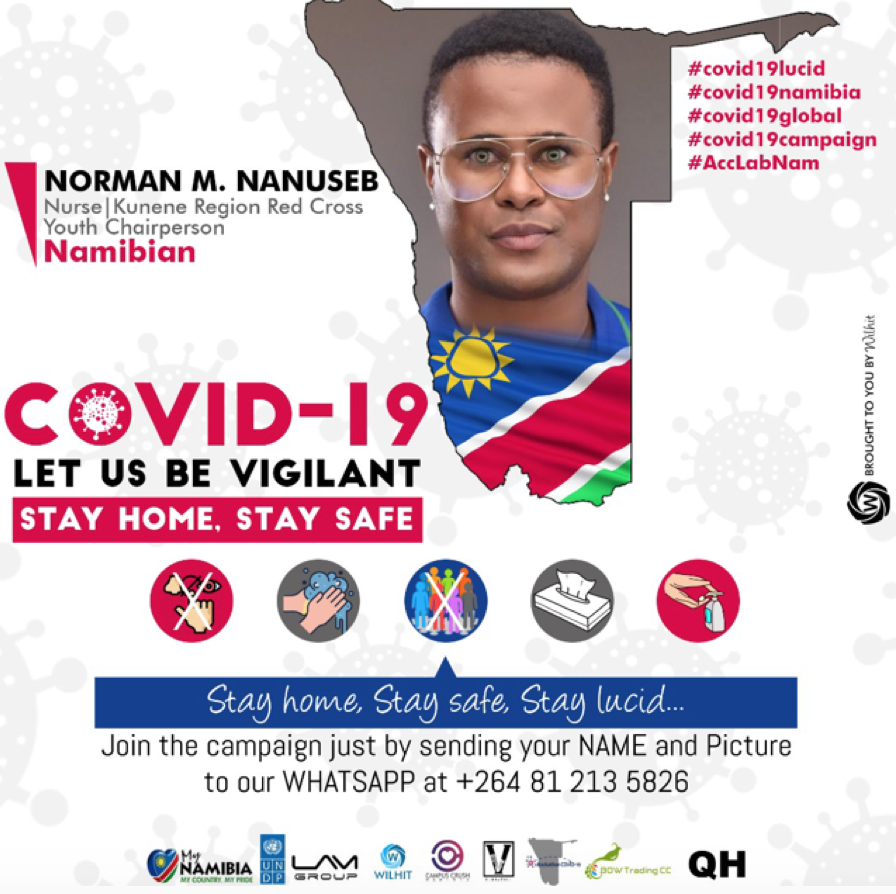
Norman Nanuseb, a 2019 Mandela Washington Fellow at Drexel created a COVID-19 preparedness campaign in Namibia.
Read more about some of Drexel's Mandela Washington Fellowship Alumni — some stories in their own words, and others shared through other news outlets — and how they’ve taken on COVID-19 in their home countries:
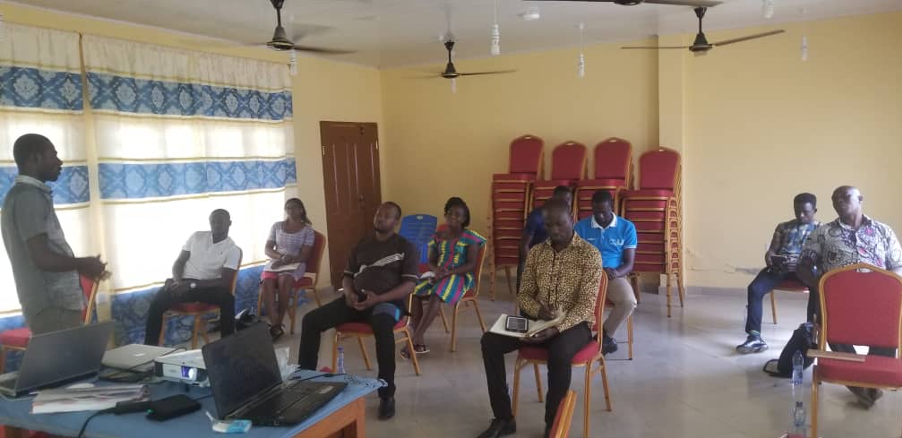 I am the lead clinician in the district rapid response team for the Asunafo South District in the fight against COVID-19 and a member of the Asunafo South District Public Health Emergency Committee, which works with the district assembly providing technical guidance for the implementation of COVID-19 directives.
I am the lead clinician in the district rapid response team for the Asunafo South District in the fight against COVID-19 and a member of the Asunafo South District Public Health Emergency Committee, which works with the district assembly providing technical guidance for the implementation of COVID-19 directives.
Together with a team, I conducted a series of trainings for healthcare workers, and has embarked on community education using local radio stations and information centers.
The team has also conducted community surveillance, contact tracing, emergency response and rumor investigations within the district.
We provided emergency levels of personal protective equipments to health staffs in hospital and liaised with identified partners and stakeholders to mount veronica buckets and hand washing points within facilities. We also worked to create a holding unit for suspected COVID-19 cases.
My co-founded organization Mediscope Diagnostic and Health Services is also producing liquid soap, chlorine bleach/parazone and hand sanitizers to support the fight against COVID-19. Through the non-profit arm, Mobile Health Foundation donated two mobile phones to the Asunafo South District Health Directorate to be used as the district hotline and for contact tracing.
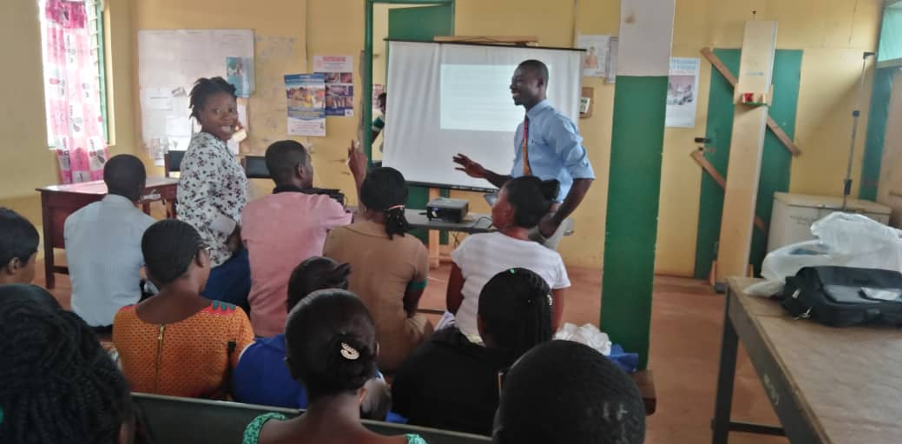 I also partnered with Hope for Ghana Foundation to procure and distribute relief items including surgical face masks, N-95 respirators, examination gloves, soap, hand sanitizers and tissue paper to Kukuom Hospital and communities in Akatsi in the Volta region. The next phase of the project involves the distribution of cloth mask to communities and health facilities.
I also partnered with Hope for Ghana Foundation to procure and distribute relief items including surgical face masks, N-95 respirators, examination gloves, soap, hand sanitizers and tissue paper to Kukuom Hospital and communities in Akatsi in the Volta region. The next phase of the project involves the distribution of cloth mask to communities and health facilities.
As an awardee for a World Connect grant, I am working on a project that will train 20 local women on sustainable life skills in the sewing of mask, standard preparation of liquid soap, hand sanitizers and detergents as a response measure in the fight against COVID-19 in my community.
The Abusua Community Medical Centre, a United States African Development Foundation grant-funded project, is awaiting the disbursement of funding for setting up a community clinic in Busunya, a community in the Nkoranza North district of Ghana. This will be a primary care facility providing essential healthcare services including general medical care, maternal and child health services, immunization and health promotion, disease control and prevention, mobile health services and home care among others.
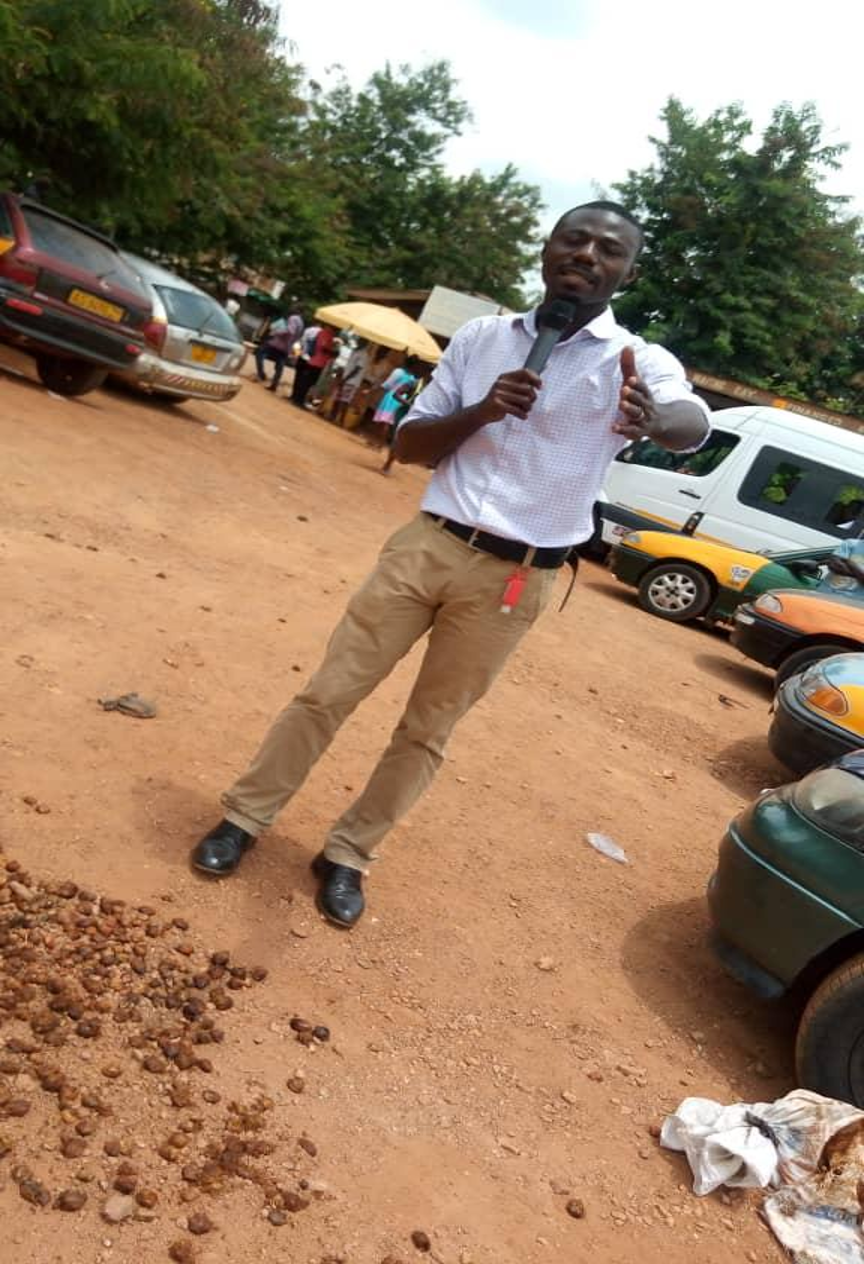 Had it not been for the COVID-19 pandemic, my reciprocal exchange partners, Drexel faculty member Michelle Lawson, JD, MS, MHRM, MBA and Kisha Elder would have been in Ghana from the 15 through 30 of May 2020 to implement the project “Enhancing the Built Environment to improve Neonatal and Maternal care in Kukuom, Ghana." This project will use the built environment to operationalize and systematize a neonatal care unit in a limited resource setting by procuring and stocking basic medical equipment as well as creating a meditation space for clinicians, patients, and visitors of the Kukuom District Hospital. Due the pandemic, the project has been postponed to later date.
Had it not been for the COVID-19 pandemic, my reciprocal exchange partners, Drexel faculty member Michelle Lawson, JD, MS, MHRM, MBA and Kisha Elder would have been in Ghana from the 15 through 30 of May 2020 to implement the project “Enhancing the Built Environment to improve Neonatal and Maternal care in Kukuom, Ghana." This project will use the built environment to operationalize and systematize a neonatal care unit in a limited resource setting by procuring and stocking basic medical equipment as well as creating a meditation space for clinicians, patients, and visitors of the Kukuom District Hospital. Due the pandemic, the project has been postponed to later date.
I continue to advocate for the preventing the spread of the infection and seeking partners to support the district in COVID-19 epidemic preparedness.
In South Sudan, there are dozens of native dialects. With the singular message, “Prevention begins with you and me. It is our collective responsibility to prevent and control COVID-19,” Peter Garang Ngor Ayok challenged viewers across South Sudan to record the message in their dialect to help spread the word nationwide. The video prompted Peter to begin the "64 Indigenous COVID-19 Ambassadors" program in which volunteers from South Sudan’s 64 ethnic groups translate information from the Ministry of Health into their own languages and record videos to share with their communities.
Watch the original video on Facebook and read the full news story "Increasing Access to Information on COVID-19" on the Mandela Washington Fellowship website.
My name is Dr. Omolara Oyadotun. I am a Consultant Public Health Physician, Fellow of the National Postgraduate Medical College of Nigeria (FMCPH) and Member West Africa College of Physicians (MWACP). I also hold degrees in Health, Safety and Environmental Management (PGDHSE), Hospital Management (PGDHM), Health Management (Msc) as well as a Master’s in Public Health (MPH).
I have been involved in the COVID-19 response in various capacities. I'm extremely proud to state that my public speaking skills were improved greatly as a Mandela Washington Fellow at Drexel University in Philadelphia. This has helped me to be widely involved in sensitization efforts on COVID-19 in Nigeria. Recurrently, I am invited to radio and television shows where I get to address my nation's teaming populace on COVID-19. This season, there's a lot of “infodemic” as expected with every epidemic. However, through the various media platforms, I have contributed to dispelling such using accurate scientific information. In order to ensure that the rural, underserved areas are not left out, I started producing jingles in the local language Yoruba under the name 'Lara Alabere.' These jingles have been widely disseminated on radio, television and social media platforms; and have helped to improve the knowledge, awareness and perception of the Yoruba-speaking populace.
I also started a phone-in telephone program, on which people have the opportunity to call everyday between 7 p.m. and 10 p.m. to ask COVID-19 related questions in Yoruba language. I'm currently a member of several media teams such as that of the Association of Public Health Physicians of Nigeria (Lagos Chapter) and Nigerian Medical Association (Lagos Chapter). On these media teams, we brainstorm on how to address COVID-19 response issues effectively through public speaking, media partnerships, social media drive and other innovative means.
I'm also gearing up to feature in a film on COVID-19 targeted at farmers in rural areas. By all means, it is of utmost importance that our farmers are able to access important information that would help them to remain healthy so we do not have to grapple with famine as well.
I have also been involved in the training of health care workers on Infection Prevention and Control; the keystone to management of COVID-19. This I did, as a volunteer with the Nigeria Center for Disease Control. I helped to train volunteer health care workers from the private and public sectors; some of whom have been deployed to work in the treatment centers. Public Speaking skills learnt during my fellowship also played a huge role in ensuring effective delivery of lectures.
My activities in the COVID-19 response increase every day. Currently, I'm also a member of a couple of research teams. I was also involved in the Ebola outbreak of 2014 in similar public sensitization roles and contact tracing, though on a smaller scale. I have also been involved in the management of local outbreaks of Lassa fever and Cholera in similar capacities. My Yoruba program,' Lara Alabere' has been expanded to cover other topical health issues as they arise.
The Mandela Washington Fellowship has no doubt increased my value and capabilities to achieve these goals.
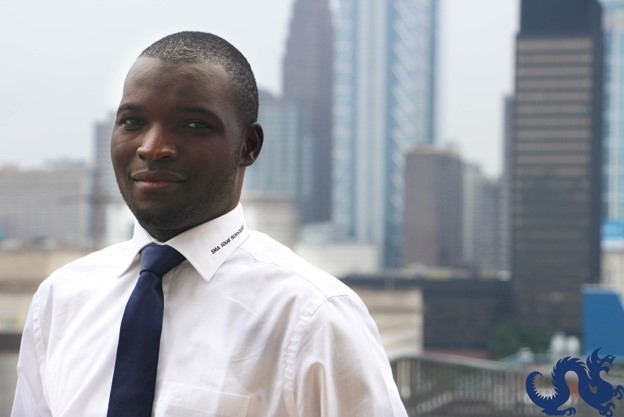 Muhammad Saddeeq's organization Rural Health Mission Nigeria was awarded a $20,000 grant by the U.S. Embassy in Nigeria to implement his “COVID-19 Response Project.”
Muhammad Saddeeq's organization Rural Health Mission Nigeria was awarded a $20,000 grant by the U.S. Embassy in Nigeria to implement his “COVID-19 Response Project.”
The “COVID-19 Response Project” provides training, support and information sharing to control the spread of the virus in Nigeria. So far, Rural Health Mission Nigeria has trained 114 primary health care (PHC) workers on infection prevention and control of COVID-19. Muhammad also developed an online infection prevention and control training package for further PHC. To date, the trainings have reached over 100 different communities in the Gombe state.
Read the full story, "Mandela Washington Fellowship Alumnus Receives U.S. Embassy Grant for Work with COVID-19" on the Office of Global Engagement's website.
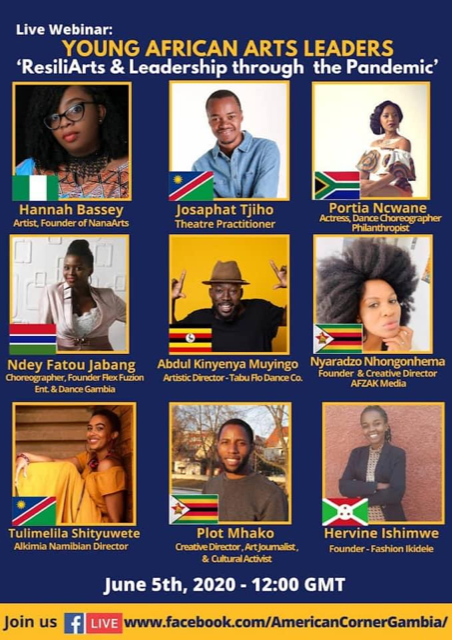 Using my art background and experience, I have been collaborating with different institutions and stakeholders to raise awareness on COVID-19 in Namibia. Because of our country’s and the world’s restrictions for isolation and quarantine as well as social distancing, most of my involvements and awareness-raising efforts were made through social media platforms and sharing short video clips.
Using my art background and experience, I have been collaborating with different institutions and stakeholders to raise awareness on COVID-19 in Namibia. Because of our country’s and the world’s restrictions for isolation and quarantine as well as social distancing, most of my involvements and awareness-raising efforts were made through social media platforms and sharing short video clips.
My first engagement was with the U.S. Embassy in Namibia where I made a video clip about the background of COVID-19, my experience on lockdown as well as where people can go for assistance and help. The video clip was done in my vernacular language to include and educate those that cannot speak nor understand English.
Along with the Embassy and other US-funded program alumni in Namibia, we made another short video clip by clapping hands to show appreciation to all the health workers and essential service providers who have been working day and night to save our lives either directly or indirectly.
My second engagement was with the Media and Information Literacy Learning Initiative (MiLLi) Trust, an organization that educates young people on media literacy and content creation online. As a youth facilitator for the organization, I also collaborated with the organization by creating a short video clip about the myth around COVID-19 by acting out different scenarios.
The Mandela Washington Fellowship for Young African Leaders is a program of the U.S. Department of State with funding provided by the U.S. Government and administered by IREX. Drexel University is a sub-grantee of IREX and is implementing a U.S.-based Leadership Institute as a part of the Fellowship. For more information about the Mandela Washington Fellowship, please visit the Fellowship’s website at www.mandelawashingtonfellowship.org.